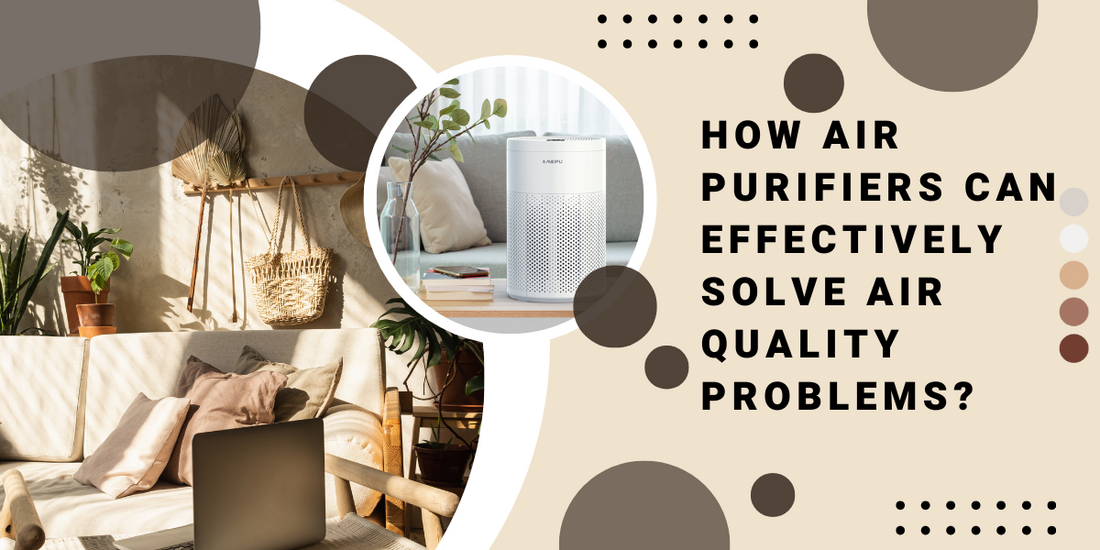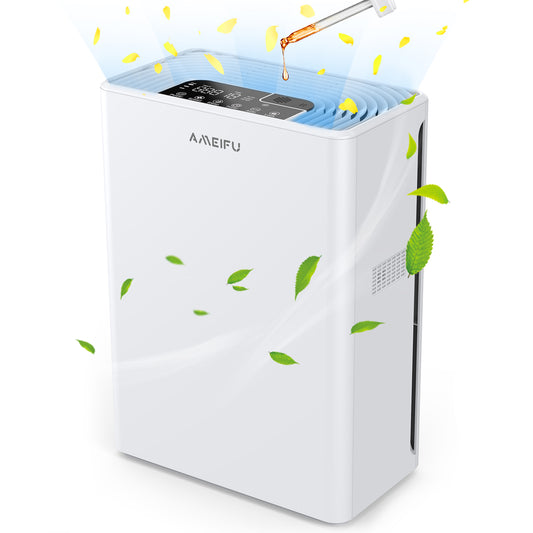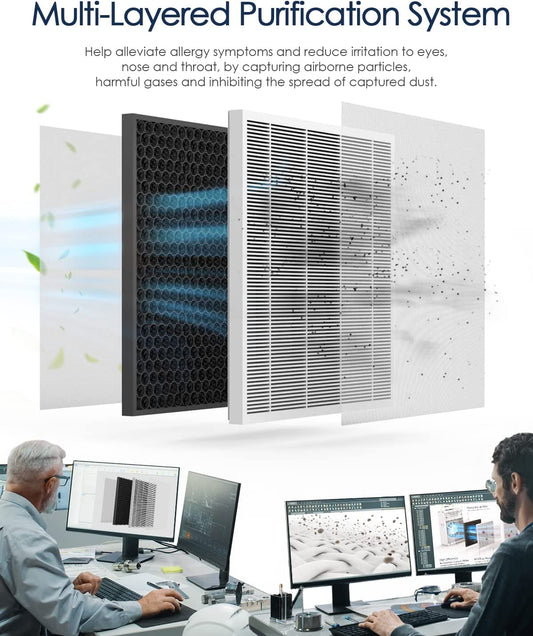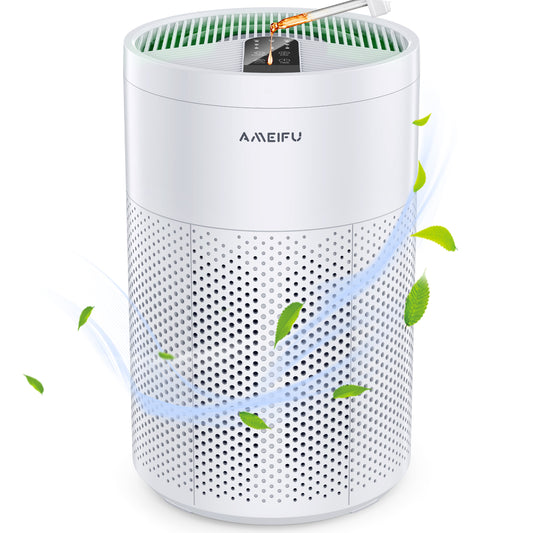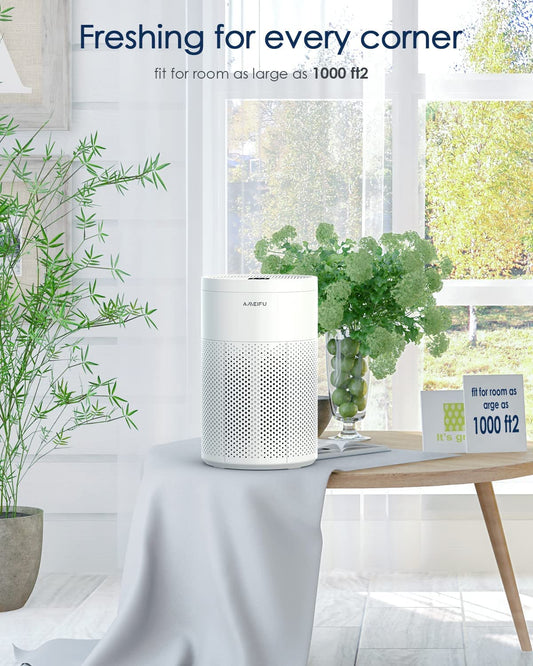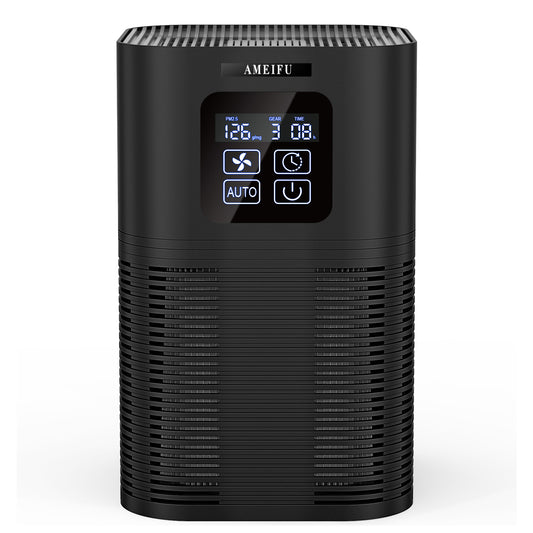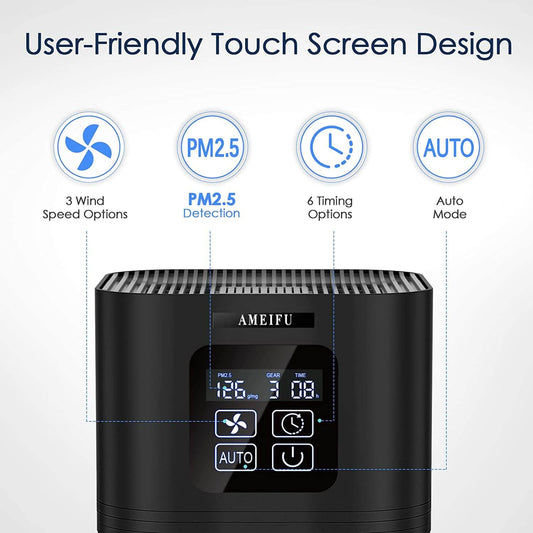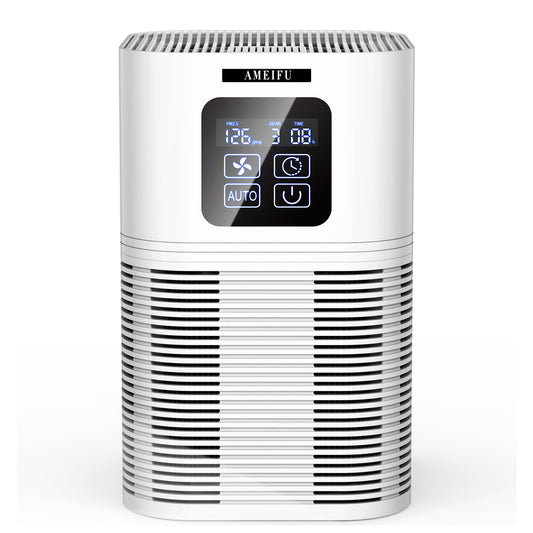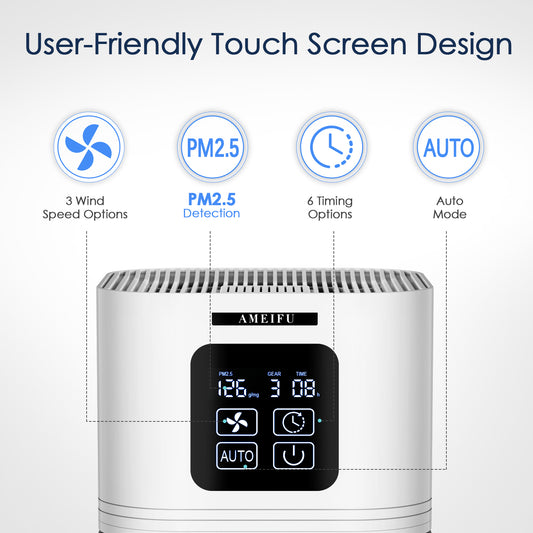As a result of the Canadian mountain fires, New York and large parts of the northeastern United States are shrouded in haze and air quality is suffering. The air throughout the region contains high concentrations of smog particles that may pose a health risk to people with respiratory problems. Fortunately, advances in technology have introduced solutions in the form of air purifiers. These devices are designed to effectively combat indoor air pollution and ensure cleaner, healthier air in our homes and workplaces. In this article, we'll explore how air purifiers can play a key role in addressing air quality issues, discussing their features, benefits, and key factors to consider when choosing the right air purifier for you.
Understanding Air Pollution and its Effects
Air pollution refers to the presence of harmful substances in the air, including particulate matter, volatile organic compounds (VOCs), pollen, pet dander, mold spores, and bacteria. Prolonged exposure to such pollutants can lead to a wide range of health issues, including respiratory problems, allergies, asthma, and even cardiovascular diseases. While outdoor air pollution is a well-known problem, indoor air pollution can be equally hazardous due to poor ventilation, chemicals emitted by building materials, household products, and other sources.
How Do Air Purifiers Work?
Air purifiers employ advanced filtration technologies to remove contaminants from the air, thereby improving air quality. The primary mechanisms used in air purifiers include:
- High-Efficiency Particulate Air (HEPA) Filtration: HEPA filters capture particles as small as 0.3 microns with an efficiency of 99.97%. They effectively trap dust, pollen, pet dander, and other allergens, ensuring cleaner air.
- Activated Carbon Filtration: Activated carbon filters adsorb gaseous pollutants, VOCs, and unpleasant odors. These filters contain a high surface area that traps and neutralizes harmful chemicals.
- Ultraviolet (UV) Germicidal Irradiation: UV-C light emitted by air purifiers destroys microorganisms such as viruses, bacteria, and mold spores by disrupting their DNA.
- Ionization: Air purifiers equipped with ionizers release negatively charged ions that attach to positively charged airborne particles. This process causes the particles to clump together and settle, reducing their presence in the air.
Benefits of Air Purifiers
- Improved Respiratory Health: Air purifiers effectively remove allergens and irritants, reducing the risk of respiratory problems and providing relief to asthma and allergy sufferers.
- Removal of Harmful Chemicals: Air purifiers with activated carbon filters can eliminate harmful VOCs and other chemicals present in indoor air, ensuring a safer and healthier environment.
- Odor Control: By neutralizing unpleasant odors, air purifiers create a fresher and more inviting living or working space.
- Enhanced Sleep Quality: Cleaner air can improve sleep quality by minimizing breathing difficulties and allergies that can disrupt sleep patterns.
- Protection against Airborne Diseases: Air purifiers equipped with UV germicidal irradiation technology can help inactivate and eliminate airborne pathogens, reducing the risk of infections.
Tips for Optimal Air Purifier Performance
To maximize the benefits of your air purifier, consider the following tips:
- Proper Placement: Position the air purifier in a central location to allow for effective air circulation. Avoid obstructing the intake and exhaust vents for optimal performance.
- Regular Cleaning: Clean the exterior surfaces of the air purifier regularly to remove dust and maintain its efficiency. Follow the manufacturer's instructions for cleaning the filters and replace them as recommended.
- Adequate Ventilation: While air purifiers help improve indoor air quality, it's also important to ensure proper ventilation by opening windows or using exhaust fans to bring in fresh air.
- Consistent Operation: Keep your air purifier running continuously, especially in areas with high pollution levels or during allergy seasons, to maintain clean air consistently.
Conclusion
Air purifiers have emerged as valuable tools in combating air quality problems. By employing advanced filtration technologies, they effectively remove pollutants, allergens, and harmful chemicals from indoor air. The benefits of air purifiers extend beyond health, enhancing sleep quality, eliminating odors, and providing protection against airborne diseases. When choosing an air purifier, consider factors such as room size, filtration technology, noise level, energy efficiency, maintenance, and budget. By implementing these considerations and following best practices, you can ensure optimal performance and enjoy cleaner, healthier air in your living and working spaces. Invest in an air purifier today and take a proactive step towards improving your indoor air quality and overall well-being.

